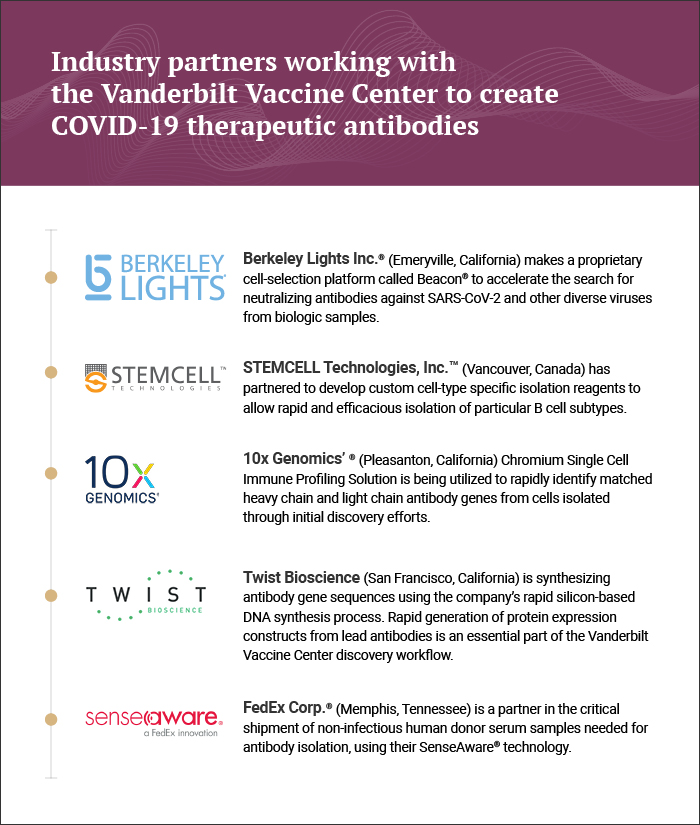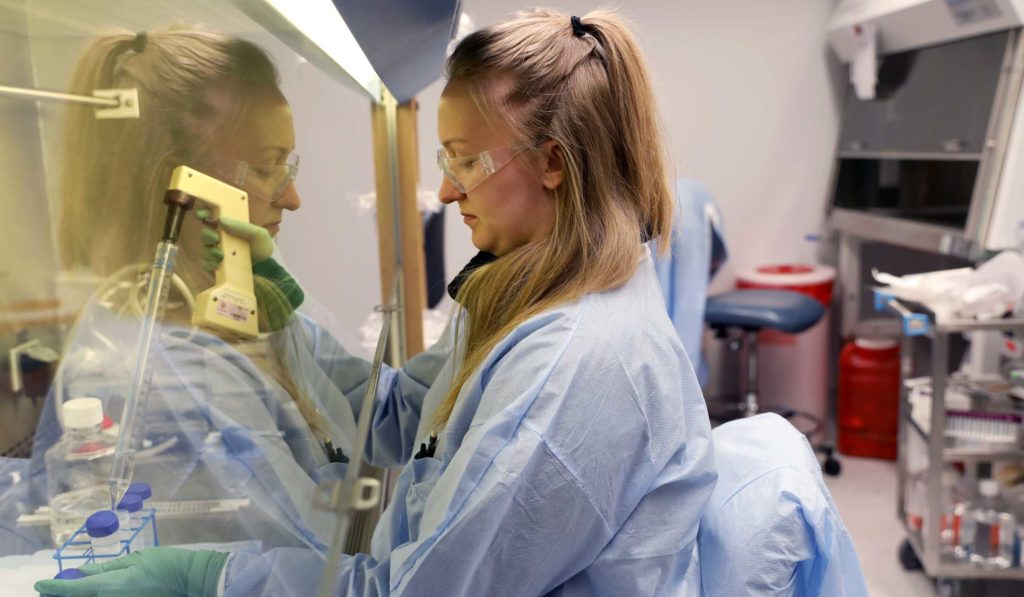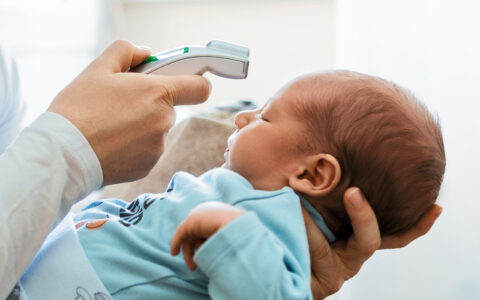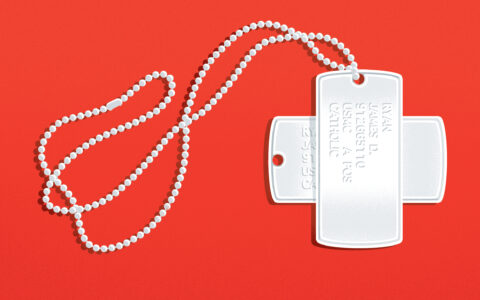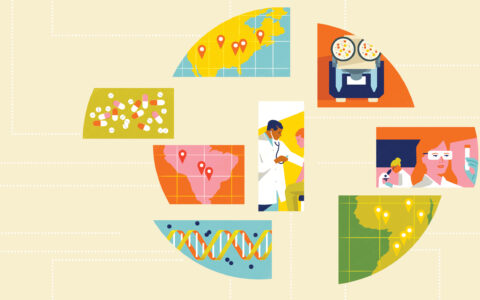While research into drug repurposing to treat COVID-19 continues, efforts are also underway to advance alternative therapeutic approaches. Vanderbilt University Medical Center has joined an unprecedented, fast-tracked global effort to develop potential antibody-based therapies designed to prevent life-threatening infection.
“Our goal is to prepare antibodies for human clinical trials by this summer,” said James Crowe, M.D., director of the Vanderbilt Vaccine Center (VVC).
“Our goal is to prepare antibodies for human clinical trials by this summer.”
The researchers are analyzing antibodies isolated from the serum of infection survivors for their ability to neutralize SARS-CoV-2, the virus that causes COVID-19. They will then generate human monoclonal antibodies for further testing.
Critical Antibodies
Thousands of promising antibodies have already been identified by the VVC and are now being analyzed for their ability to inhibit the virus and, more importantly, prevent it from causing illness. High-throughput antibody sequencing efforts are underway at the Vanderbilt Technologies for Advanced Genomics.
The approach is aligned with recent FDA initiatives to fast-track antibody therapies.
On March 24, the FDA issued an emergency IND for the use of convalescent plasma collected from recovered COVID-19 patients. “It is possible that convalescent plasma that contains antibodies to SARS-CoV-2…might be effective against the infection,” wrote the FDA in their announcement approving its use to treat single patient emergencies.
Pandemic Prevention
Support for the effort is provided in part by the Defense Advanced Research Projects Agency of the U.S. Department of Defense. The VVC is a participant in DARPA’s Pandemic Protection Platform (P3), a five-year cooperative agreement to develop protective antibody treatments that can be rushed to health care providers within 60 days after the outbreak of viral diseases anywhere in the world.
In 2019, DARPA’s P3 partners developed, in just 11 weeks, a protective antibody-based treatment that targets Zika virus.
For COVID-19, “The speed with which we can do this depends a little bit on whether we can find exactly the right antibodies that our industry partners can scale efficiently and effectively,” said Jeff Balser, M.D., president and CEO of Vanderbilt University Medical Center, in a video posted online.
A Network of Expertise
Vanderbilt Vaccine Center researchers have helped develop monoclonal antibodies against a wide range of pathogenic viruses including Ebola, avian flu, chikungunya, HIV, dengue, norovirus and respiratory syncytial virus. They have pioneered the rational design of neutralizing antibody treatments and vaccines.
The COVID-19 team includes academic researchers across the nation, plus several corporate partnerships. Industry technology helps researchers isolate antibody-producing B cells from serum, rapidly identify key antibody genes, and synthesize protein expression constructs.
This research toolkit, combined with past experience, “has allowed us to define a flexible and rapid approach algorithm to pursue protective antibodies,” said Robert Carnahan, Ph.D., associate director of the VVC.
Vanderbilt’s many academic partners in the effort to identify and validate anti-SARS-CoV2 human antibodies include:
- Helen Chu, M.D., assistant professor of medicine and infectious disease expert at the University of Washington School of Medicine in Seattle;
- Michael Diamond, M.D., an internationally known expert on emerging infectious diseases at Washington University School of Medicine in St. Louis;
- Frances Eun-Hyung Lee, M.D., director of the Asthma, Allergy, and Immunology Program at Emory University School of Medicine in Atlanta;
- Ralph Baric, Ph.D., professor of Epidemiology at the University of North Carolina School of Medicine at Chapel Hill; and
- Dan Barouch, M.D., director of the Center for Virology and Vaccine Research at Beth Israel Deaconess Medical Center in Boston.
